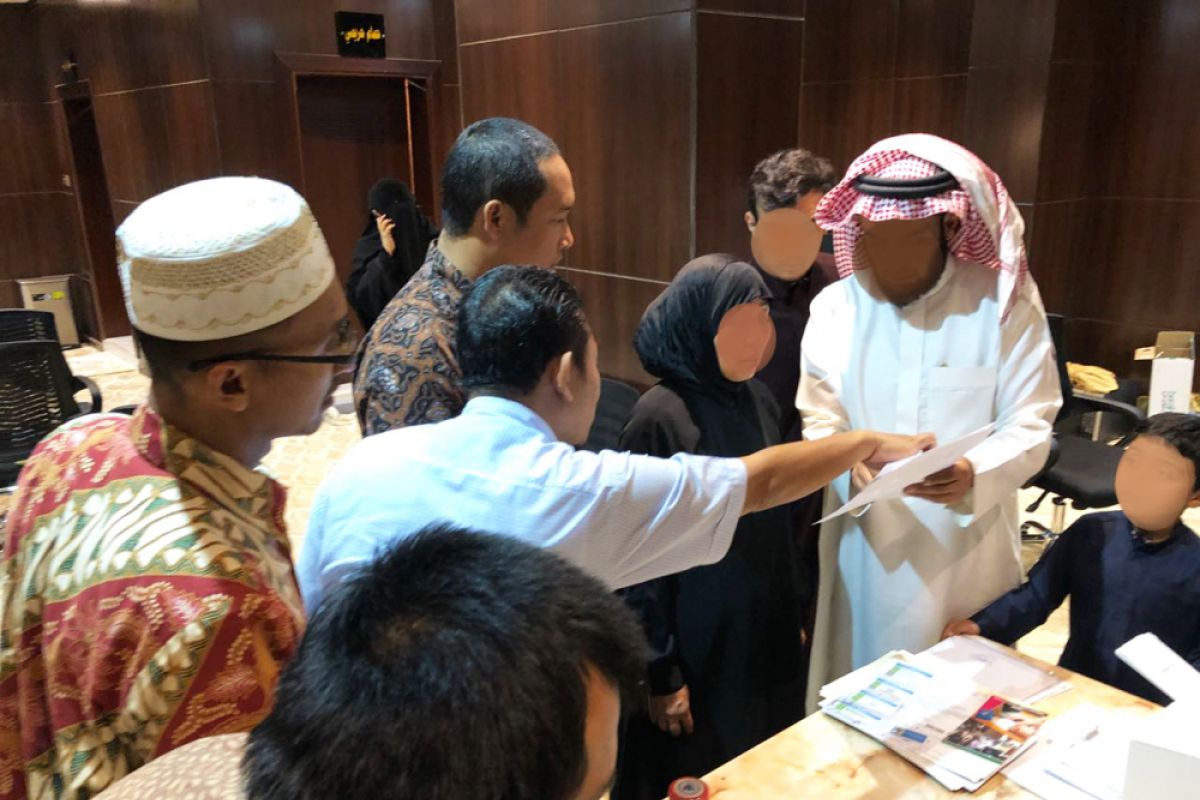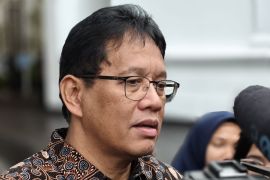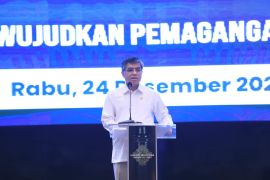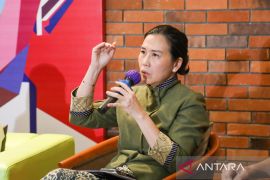She first left for the Middle Eastern country in 1995 when she was just 18 years old. She returned to her homeland for the first time early this week.
According to the government, she was finally paid for the first time in 22 years.
"Her salary work was never paid by her employer, so Sukmi was depressed. She had communication problems too," head of Serang`s Center for Manpower Domestic Worker Protection and Placement Services (BP3TKI), Gatot Hermawan, told the media while trying to interview Sukmi upon her arrival at Jakarta`s Soekarno-Hatta Airport on Saturday.
After many years of not hearing from Sukmi, and not having any means to contact her in Riyadh, her family reached out to BP3TKI who sought the help of Indonesian embassy in Riyadh. Fortunately, they were able to find her and rescue her after finding out that she had been unpaid in over two decades.
The Indonesian government mediated with Sukmi`s employer who agreed to pay Rp586 million as her back pay, equivalent to US$44 thousand (or about $166 per month).
Hermawan did not mention if it was the full salary she deserved or a percentage.
According to him, the money was used to purchase Sukmi`s flight back to Indonesia, and the rest was currently being held by the embassy in Riyadh.
He stated that the balance amount would be transferred to Sukmi once she sets up a local bank account in Indonesia.
The circumstances of Sukmi`s employment in Saudi Arabia and the reasons why she continued to work for her employer for 22 years without payment were not revealed. She spoke very little to the media at the airport and left immediately with her family to Lebak.
Common reasons why migrant workers continue to work for employers who abuse them or withhold their pay include threats or acts of violence, threats of having them jailed, withholding of passports, and isolation from families or friends whom they would seek help.
The release of Sukmi from bad confinement by her employer is inseparable from hard work of Indonesian Consulate General (KJRI) in Jeddah for forcing her employers to pay.
The KJRI had not only forced Sukmi`s employer but also the employers of five other domestic workers in Saudi Arabia to pay the salaries of their domestic helpers.
Finally, the Indonesian Consulate General forced two employers to pay for their ART, each with initials SSA and SSWD, during the integrated service on Sept 14 in Abha City, a press release sent in Jakarta on Wednesday stated.
The Yandu Team of the Indonesian Consulate General revealed the case of a Banyuwangi domestic worker with the initials SSA, who was not paid by the employer for 15 years, valued at 130 thousand Saudi riyals (around Rp487 million).
"Initially, the ART claimed that its salary had been paid. But we found that there are things being hidden," explained Muchammad Yusuf, Consul of Manpower at the Jeddah Indonesian Consulate General.
The team, Yusuf remarked, continued to try to extract the facts hidden by SSA using threats, so that he would not be able to go home forever if he was not straightforward.
Finally, the woman from Banyuwangi, East Java, said that she had never received her rights for 15 years and had never been sent home.
SSA was held in the room of the KJRI officer and was not allowed to return to the employer`s home while her passport was withdrawn.
The employer did not accept his worker being detained by the Indonesian Consulate General and reported the Yandu Team to the local authorities on charges of confining his maid.
Shortly afterwards, the Abha Police Criminal Investigation Force arrived, followed by Abha`s Chief of Intelligence, Colonel Iwadh Al Asiri, who also went to the service location.
The team tried to explain that the KJRI group comprised diplomats and staff of the diplomatic office who were in charge of providing immigration, consular, and employment services to their citizens who were domiciled in the city.
SSA`s employer also explained that the presence of the Indonesian Consulate Team was with the permission of the Ministry of Foreign Affairs and the Ministry of Internal Affairs of Saudi Arabia, and therefore, the team received protection from the local Government.
The team finally reported back to the Intelligence Chief that the reporter (SSA`s employer) had not paid the salary of his assistant for 15 years of work and had never repatriated the woman born in 1971.
As a result, the Intelligence Chief turned back at the employer and pressured the employer to pay his ART wages right away.
"The policeman told his employer that it was his fault. I cannot arrest him as he is a diplomat. And this service has official permission. This is true and it is your fault," Yusuf added, describing the tension between Team Yandu and the employer.
When asked by the officer on why he did not pay his ART salary during work, the employer argued that the maid had never asked for her salary.
"This is a classic answer I have received from the employer ever since I start handling the case of unpaid wages. After I spoke to the person concerned, he clarified that he was pressured by the employer," Joseph, an official of the KJRI said.
Editing by Suharto
Reporter: Eliswan Azly
Editor: Fardah Assegaf
Copyright © ANTARA 2018












